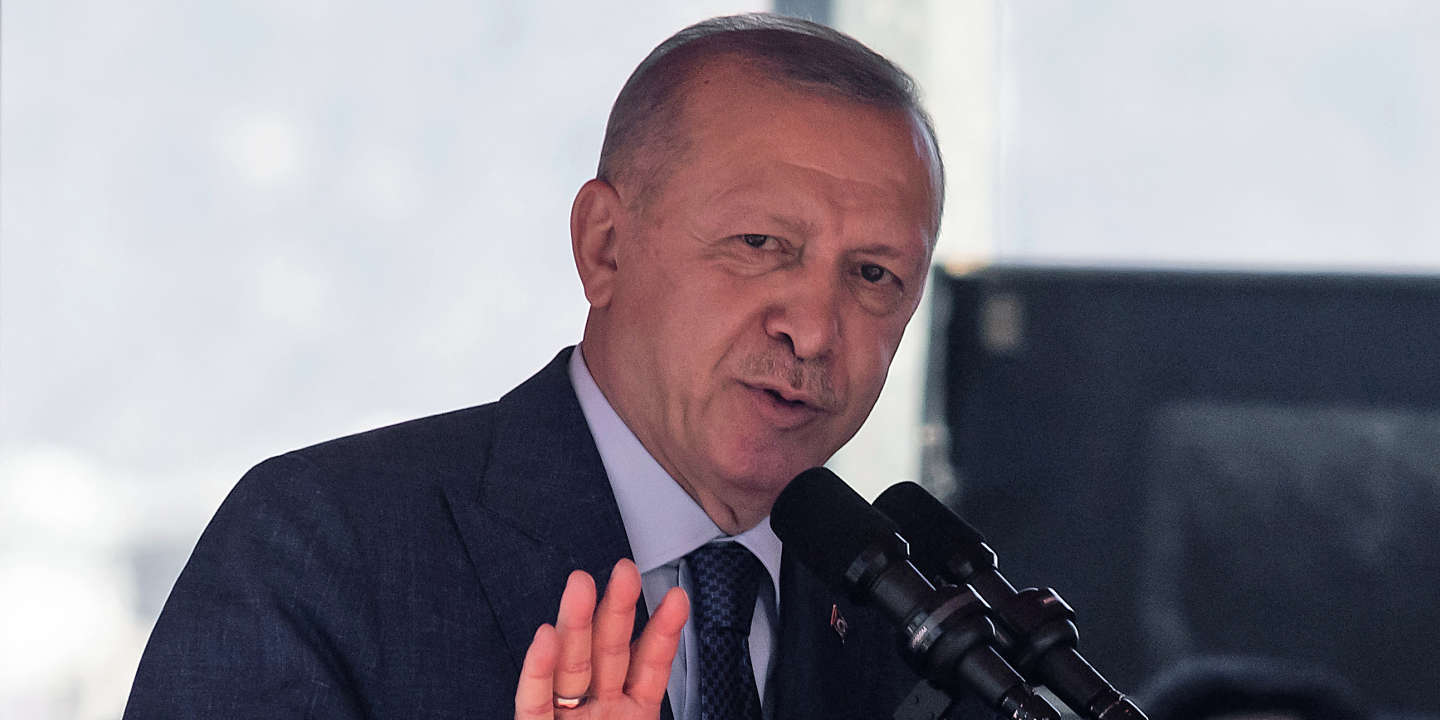A month before the fall of Kabul, president Recep Tayyip Erdogan proposed that Turkish non-combat forces there stay beyond the agreed withdrawal deadline. The Taliban warned that despite ‘historic, cultural and religious bonds with the Muslim people of Turkey’, they would view such a move as a continuation of the occupation of Afghanistan.
Despite the snub and the anticipated migratory pressure on Turkey the Afghan crisis has played into Erdogan’s hands domestically as well as in terms of his geopolitical ambitions. With the help of the Turkish media the crisis has deflected attention from his mounting difficulties at home, it has made him strategically more useful for the US and, crucially, it has reignited Europe’s migratory phobia.
No one will be in the mood to get tough with him now. Not that anything the EU has said or done over the years has restrained his misguided imperialism or domestic despotism.
To a large degree Erdogan’s unbroken 19-year rule has rested on his capacity to impose his narratives through the near total control of Turkey’s media. Reporters without Borders found that 90 percent of Turkish media are controlled by the government1. The Committee to Protect Journalists counts 37 Turkish journalists in jail2. In the coming weeks a Social Media Directorate will be established under the guise of regulating digital media3.
Despite this stranglehold the gap between his AK Party and the opposition CHP stands at 8.2 percent, the narrowest on record according to July polling monitored by Michael Sercan Daventry, a British-Turkish journalist4. It stood at 20 percent in the 2018 elections.
The British analyst Robert Ellis reported that the mood in Turkey is grim and “like the wildfires which destroyed the country’s forests it doesn’t take more than a spark to set off an explosion”. He quoted editorial sources as saying that “Drop by drop, the fury against Erdogan’s rule is accumulating.”
It is this domestic fury that will in the end bring him down. Internal resistance and the turmoil it has intermittently given rise to has always been his greatest fear. It does seem like a long shot, yet the EU can begin to contemplate what Turkey might look like after Erdogan.
It must know that handling a volatile and potentially hostile fall-out might be tougher than handling Erdogan himself. There is no guarantee that the rule of law, the respect for fundamental rights and media freedom would prevail even if he were to go quietly after the 2023 elections.
More pressingly his departure won’t mean that imprisoned human rights defenders, journalists and academics will be released. Nor can it be guaranteed that activists and dissidents, those abroad and those within, would be able to cope against a pro-Erdogan body politic unwilling to transition to an era without him. What happens to the elite courtiers both corporate and institutional that have set roots? How quickly can the secular but divided opposition regroup and how can free media re-engage?
Certainly, unlike other autocracies on the periphery of Europe, Turkey does have experience in democracy albeit the kind closely surveilled by its once invincible and not so democracy-loving military.
Erdogan’s fall will not mean a return to 2002. Religious nationalism has completely reshaped the country and has created deep divisions. The refugee crisis and the deepening economic one will still be there. On top of which there is no guarantee that if and when the toxicity he injected in the country’s judicial and educational veins is diluted that any new leadership would actually step back from his internal tactics or ambitious expansionism.
To hope therefore for ‘a new kind of politics’ would be exaggerated particularly when western democracies are incapable of attaining it themselves. The burden will fall on Turkey’s own liberal class, the moderate political elite, even the now protesting westward looking university student body and, especially, independently minded journalists and intellectuals.
Once a new Chancellor is elected in Germany the EU and the US will need to reflect closely on Turkey. They cannot afford to get it wrong this time. Sixteen years ago, in 2005, the Financial Times maintained that Erdogan’s government had made ‘enormous strides’ in meeting the conditions for EU membership butconsidered that Turkey was still ‘a decade away from actual entry’. Turkey and the world have changed since then but it is still absurd that membership was actually seen as feasible sometime around 2015.
Today Turkey is sitting somewhere in the 1980s. Fed on a diet of political Islam and populist notions of military prowess the majority of voters seem to have stopped looking west and have bought into Erdogan’s narrative. Not only has he convinced them not to want EU membership but many now believe Turkey to be the EU’s equal.
Accession always was and will remain an impossible prospect; clearly neither side wants it anymore. Yet a strong EU-Turkey political partnership is absolutely necessary. It will take time for a changed Turkish public opinion to see meaning in that.
The re-emergence of independent media can help a post-Erdogan Turkey re-frame its domestic priorities, gradually redefine its foreign policy orientation and create a new narrative. It might, hopefully, also help dispel some of its illusions. Among them one that predates Erdogan but which he and the media that support him have shamelessly exploited: The myth that Turkey is constantly under threat which gives it license to systematically bully its neighbours.
1: https://rsf.org/en/taxonomy/term/145
3: https://www.dailysabah.com/politics/legislation/turkey-to-open-social-media-directorate
4: 1 https://www.jamesinturkey.com/
By: Nicholas Karides
BIO: Nicholas Karides is the author of Knowing One’s Place (2017), a collection of essays on journalism, history and football. He is a member of the Centre for Media Pluralism and Media Freedom’s team monitoring Cyprus.



